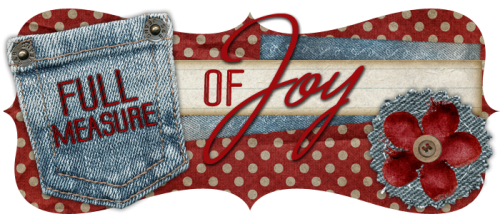If you read my blog yesterday, you know that I’m going to give you some tips on how to study the Bible today. I may go overboard…if I do, please accept my apology.
Reading God’s Word and studying it are two different things. Yes, we must read the Bible, but when we go a little farther, dig a little deeper, we come to understand all of God’s message. And what a message it is!
 To begin, we must understand that there is purpose for studying God’s Word. We find three in the New Testament. First, Bible study is useful for transformation. Romans 12:2 (NIV) says, “Do not conform any longer to the pattern of this world, but be transformed by the renewing of your mind. Then you will be able to test and approve what God’s will is—his good, pleasing and perfect will.”
To begin, we must understand that there is purpose for studying God’s Word. We find three in the New Testament. First, Bible study is useful for transformation. Romans 12:2 (NIV) says, “Do not conform any longer to the pattern of this world, but be transformed by the renewing of your mind. Then you will be able to test and approve what God’s will is—his good, pleasing and perfect will.”
Bible study is also useful to equip us for service. We read in 2 Timothy 3:16-17 (NIV) that “All Scripture is God-breathed and is useful for teaching, rebuking, correcting, and training in righteousness, so that the man of God may be thoroughly equipped for every good work.”
And finally it is useful to impact our world. Jesus mentioned in Matthew 5:13-16 that we are to be the salt of the earth and the light of the world. And the reason? “In the same way, let your light shine before men, that they may see your good deeds and praise your Father in heaven.” (Matthew 5:16 – NIV)
After you understand the purpose of Bible study, the first thing I would say is to get a good study Bible. Now some of my peers may be cringing at this point. But new Bible studiers must start somewhere and I believe an excellent choice is Zondervan’s NIV Study Bible. The version is easy to read and the notes are pretty decent.
You may want to gather some items before beginning as well. You may need a diary or notebook to take notes of your study. You may need a few pens or pencils. I have found that Sanford makes a good dry pencil specifically designed for Bibles. They come in multiple colors and you can use them to highlight verses in your Bible.
Of course, this brings up the question of whether to write in your Bible or not. It really is up to you. There is nothing in Scripture that says we shouldn’t. But I have found that if I don’t write it down, I will forget it. So if I find something useful to write in my Bible for teaching purposes, I will write it or underline it in my Bible.
After you’ve gathered your materials, you then must choose a book to study. You might consider 1 Peter, 1 John or perhaps James. Once you’ve chosen your book, the studying begins.
Take some time to learn about the book, the author, and the setting of the book. This is where your new study Bible will come in handy. All of this information is available just before the book.
And ask yourself these questions: Who? What? When? Where? Why? The reporter questions. Find out these important elements and you’ll already have a better understanding of the book.
You’ll also find an outline of the book listed in this section of the study Bible. After you’ve studied the book, you may want to re-write the outline. Make a personal outline of the book.
Then you will want to read through the book several times. Get to know the style of the writer. Get an idea of what’s coming up. You also might consider listening to the book. I have a full set of audio CD’s of the Bible, and I love listening to what God is saying. I hear things that I don’t read. This is a valuable tool for me.
Then it’s time to begin the study. Read a verse or a section of your chosen book and see how this passage is to be interpreted. The content and context of the passage is important and relevant. Far too many have chosen a verse to back up a point where the verse was completely taken out of context. We must be careful to know how to use God’s Word.
Of course, if all of this Bible study doesn’t change us, what good is it? You’ll ask yourself that question several times if you chose to study the Book of James! There must be change, therefore there must be application.
After studying the book, ask how does it relate to my life? Where does this book specifically speak to me and my life?
Then meditate on what you’ve learned from studying this book. You may ask yourself, how might this knowledge effect change in my life? What does God want me to learn from this book?
Finally, practice what you’ve learned. As you implement these principles into your life, you will see the good in studying God’s Word and you’ll be ready to start again with another book.
I pray that you will become excited about studying Scripture. That a great desire will rise within you to seek the presence of God in His Word. For me, it’s what drives me. Learning something new from the Bible each day. Oh, and that’s an amazing thing about studying. You will never know it all. There is always more to learn.
If you have any questions about what you’ve read today, please don’t hesitate to contact me. I’d love to help you get started.
It’s not too late in the year to set a resolution. Maybe this year you might resolve to study several books of the Bible. It just might be the best resolution you’ve ever made.
Grace and peace be yours in abundance,
Donna

 January 26th, 2013
January 26th, 2013  dsisler
dsisler 
 Posted in
Posted in  Tags:
Tags: 
